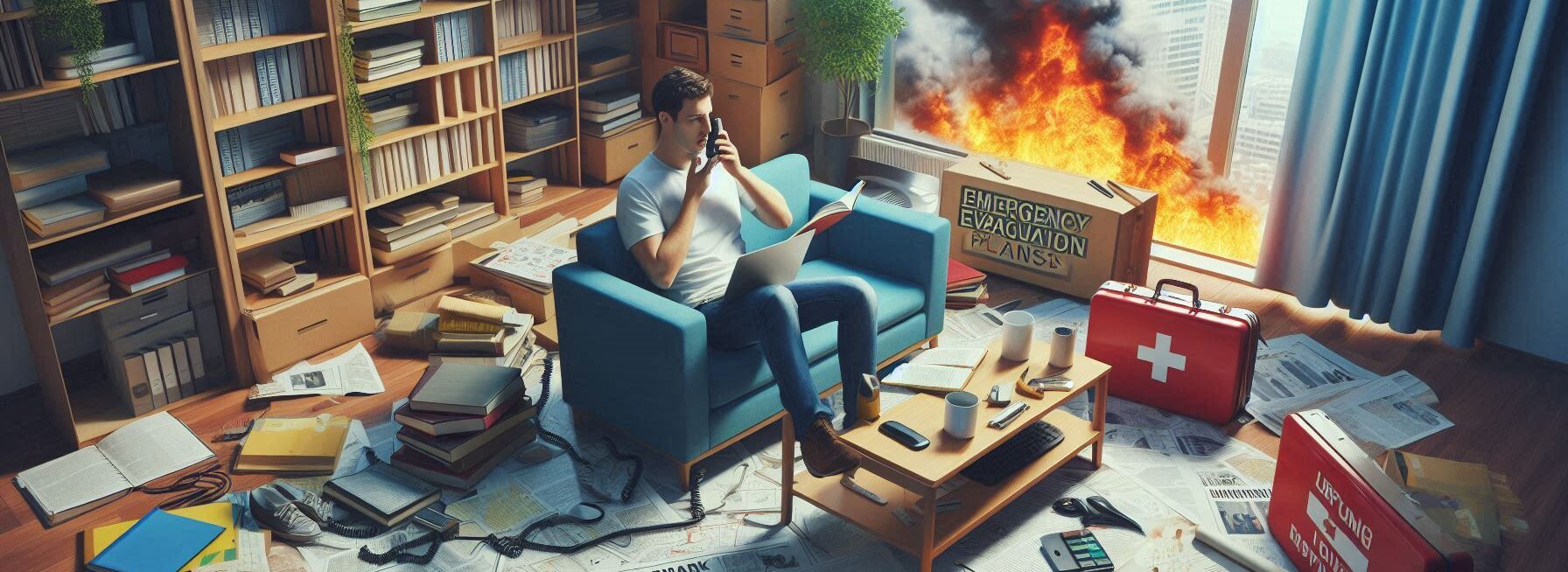Last Updated on November 2, 2025 by Kevin Collier
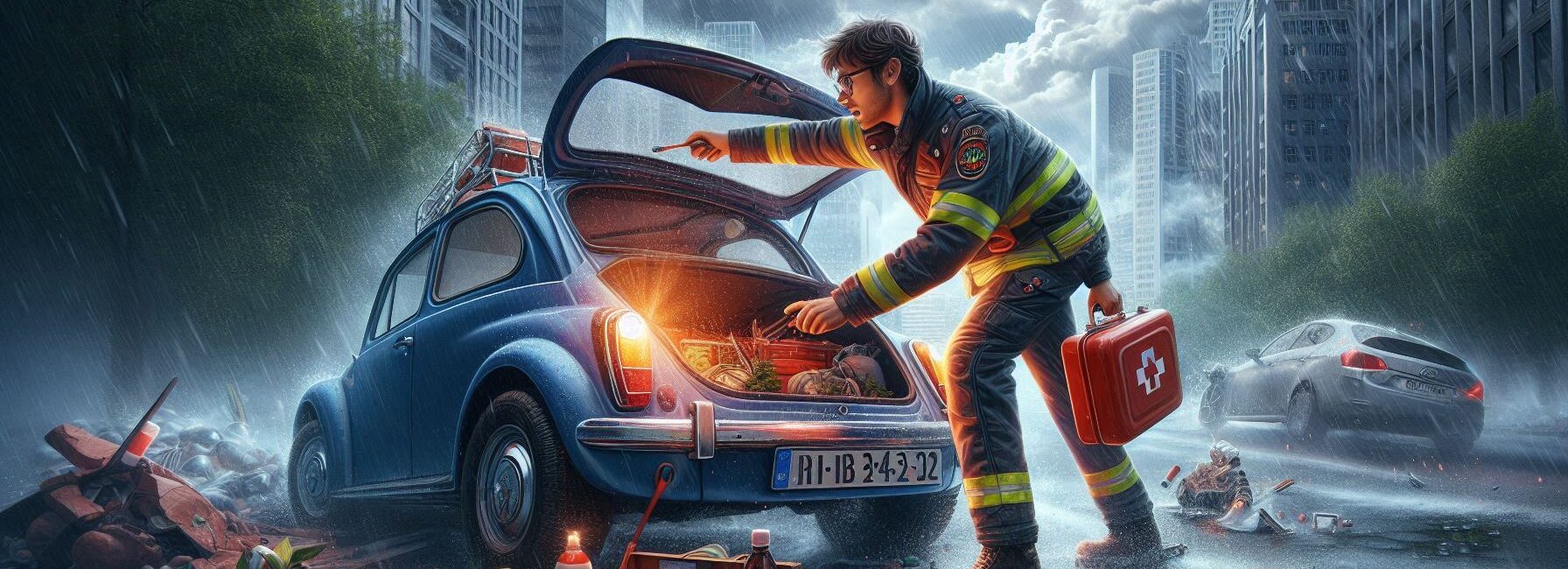
Top Takeaways and Key Concepts
– Keep an emergency kit in your car with essential supplies.
– Regularly check and maintain your car's fluids and tire pressure.
– Ensure your spare tire, jack, and tools are in good condition.
– Plan and communicate travel routes with someone you trust.
– Update your car's insurance and emergency contact information regularly.
Imagine this: you’re driving down the highway, feeling the breeze and singing along to your favorite tunes. Life is good. Then—BAM! A tire blows out. Or maybe you just realized you're running on fumes, and gas is nowhere in sight. Yikes!
Please Note: This post may contain affiliate links. If you click one of them, we may receive a commission at no extra cost to you. As an Amazon Associate, I earn from qualifying purchases.
Suddenly, it feels like a scene out of a scary movie. The hero (that’s you!) is in trouble because they didn’t plan ahead. We can avoid that! Let’s chat about easy ways to get your car ready for surprise hiccups that could turn your fun trip into a really funny disaster.
First things first, check those tires. Give them a little love. Make sure they’re not too worn down. A quick glance at the air pressure can save you from a flat. Just a little air can make all the difference. You don’t want to be stuck on the side of the road, right?
Don’t forget the spare tire! It's hiding in the trunk, right? Make sure it’s in good shape and that you have the tools to change it. Nothing like having a spare ready to go when you need it. You might even want to practice changing it. It sounds silly, but it’ll help if you ever have to do it for real.
Next up, the gas gauge. Ugh! It’s so easy to ignore. Make it a habit to fill up whenever you can. If you see a half-empty tank, stop and refuel. You’ll feel like a genius later. You won’t be the one stranded and panicking at the gas station.
And what about your emergency kit? Pack one for your car. Think snacks, water, a first-aid kit, and maybe a flashlight. You never know when you might need it. Plus, snacks are great for road trips. Who doesn’t love munching while driving?
Lastly, always, always have your phone charger. When you're on the go, it helps to keep that battery full. You might need it for directions or to call for help. Easy-peasy.
Taking just a little time to prep can turn a potential disaster into a funny story later. You’ve got this! Enjoy your ride. Let the wind blow through your hair, and don’t sweat the small stuff. Happy travels!
*** Shop for Survival Gear - Tools - Kits ***
Survival Gear - Bags and Backpacks - Knives - Boots/Footwear - Communication
Outdoor Cooking - Gloves - Hydration - Dry Boxes - Water Filtration Systems
Tents - Sleeping Bags - First Aid Kits - Multi-Tools - Flashlights - Fire Starters
Navigation - Survival Food - Night Vision - Headlamps - Stun Guns - Binoculars
Check Your Emergency Kit
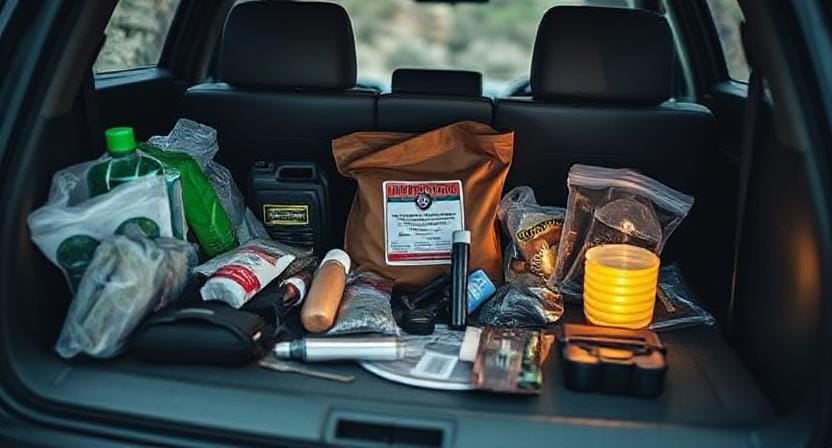
First things first: every car needs an emergency kit. I mean, have you ever tried to change a flat tire without one? It’s about as easy as trying to teach a cat to fetch.
Start by stocking your kit with essentials: jumper cables (because who doesn’t love playing electrical engineer?), a flashlight (preferably one that works), and basic first aid supplies.
Don’t forget snacks! You might think I'm joking, but if you’re stuck on the side of the road waiting for help, trust me when I say that granola bar will feel like gourmet cuisine.
Also consider adding water—just make sure it’s not been sitting in your trunk since last summer's heatwave; nobody wants warm water when they’re parched.
And speaking of snacks, include some entertaining reading material or games for those “I’ll be here forever” moments. Who knows? You might discover that Sudoku puzzle you've been avoiding while waiting for roadside assistance!
Regular Maintenance Checks
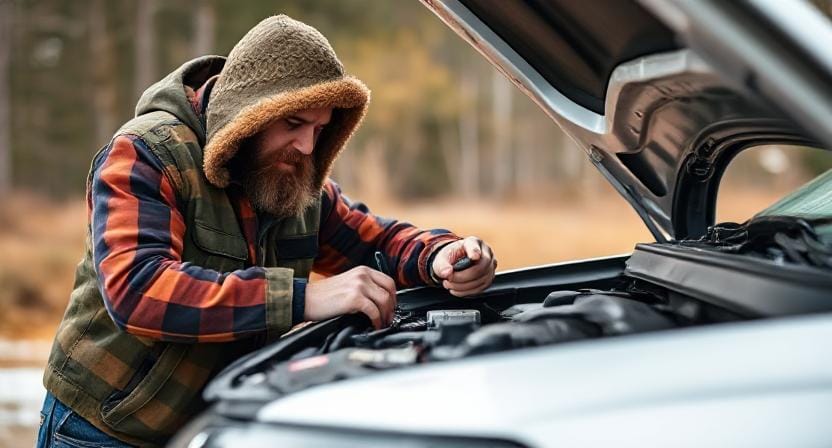
Honestly, there’s nothing quite like the feeling of driving a well-maintained vehicle. But let's face it—life gets busy!
Between work deadlines and binge-watching the latest series on Netflix, checking your oil levels can slip through the cracks faster than my dog snatches treats off the counter.
To avoid becoming part of an epic roadside drama, set reminders on your phone or calendar for regular maintenance checks.
This includes oil changes (which are not just suggestions), tire rotations (because tires need love too), and brake inspections (you really don’t want to find out they’re faulty during an emergency).
By keeping tabs on these tasks, you'll save yourself from future headaches—and potentially costly repairs—that could leave you stranded somewhere between nowhere and oblivion.
Know How to Handle Common Emergencies

Knowing how to handle common emergencies is crucial. What do you do if you run out of gas? Or if your battery dies unexpectedly? These situations can happen even to the best-prepared among us!
For instance, if you're low on fuel and see that ominous “E” light flickering at you like it's signaling distress from outer space, pull over immediately instead of pushing it for another five miles!
Trust me; running out of gas isn’t just embarrassing—it also leaves you at the mercy of whatever driver decides to stop and offer help… or take pictures for social media.
And what about getting locked out? It happens more often than we’d like to admit! Keep a spare key hidden somewhere discreet—or better yet, give one to a trusted friend or family member.
Just don’t hide it under that rock shaped like Bigfoot; everyone knows that's where people look first!
Stay Informed About Weather Conditions
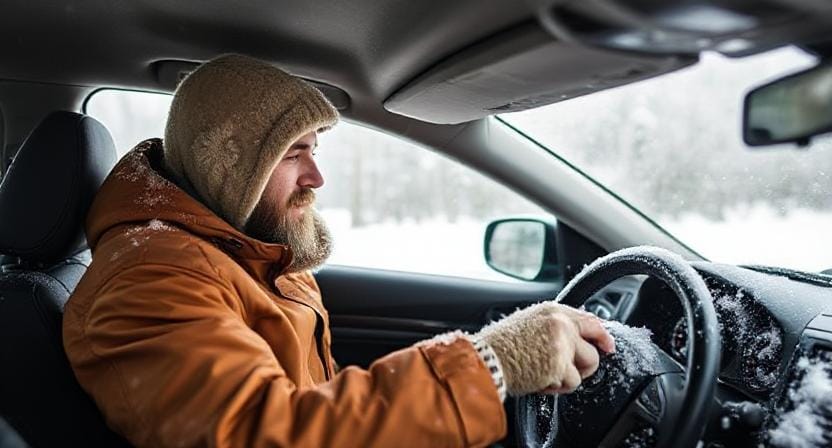
Weather plays a huge role in our driving experience—and our safety! Before hitting the road during stormy seasons or snow days, check local forecasts so you're not caught off guard by Mother Nature's mood swings.
If bad weather is looming overhead—like dark clouds gathering ominously—you might want to reconsider whether today is really meant for an adventurous drive across town. Sometimes staying put is smarter than challenging nature head-on!
And let’s talk winter driving: keep blankets in your car just in case you get stuck in snowdrifts worthy of their own Instagram account! They’ll keep you warm while waiting for help—unless you're lucky enough to be rescued by someone with hot cocoa.
Practice Safe Driving Habits
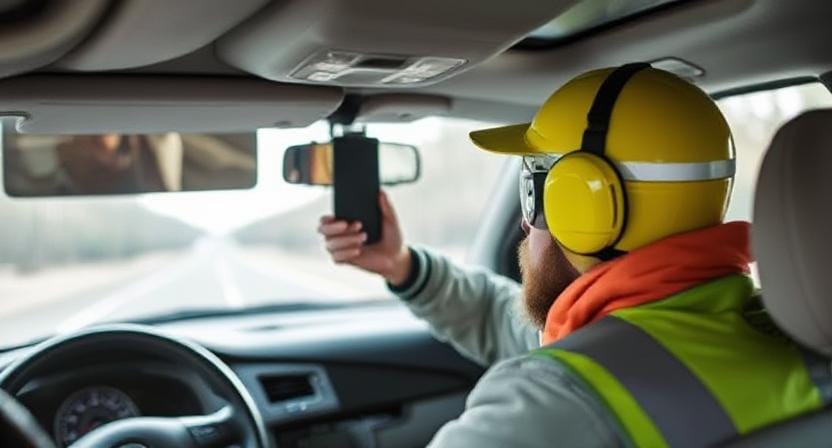
Now that we've covered preparing your car physically and mentally (yes, cars have feelings too!), let’s chat about safe driving habits. Speeding may seem tempting when you're late—but it increases both risk factors and potential accidents exponentially.
Always buckle up—even if you're just going around the corner—as seat belts are still among our best friends during unexpected stops or collisions. And hey, don't text while driving; no message is worth risking life and limb over unless it's about pizza delivery!
Keep distractions at bay by using hands-free devices if necessary; after all, we want our adventures behind the wheel filled with excitement—not chaos caused by fumbling with gadgets.
Conclusion: Be Prepared and Have Fun
You know that nice feeling you get when you're ready to go on an adventure? It's like being wrapped in a warm blanket. That's what being ready can do. It makes you feel better.
Having a few useful ideas on hand—maybe in your glove compartment—can make a big difference. Picture yourself driving down the road with confidence, knowing you're ready for anything.
So let's do that! Fill up your petrol tank, check your tires, and pack your emergency kit. It feels amazing, doesn't it? Not having to worry about getting stuck somewhere with a flat tire or an empty tank. That's how life is.
Have fun driving! Feel the breeze, listen to your favorite songs, and enjoy the ride. It's all about the journey and making memories. Just don't forget to get ready. It makes those dangerous times feel like small bumps on the path instead of enormous crises.
You don't have to call AAA from a secret place. You can do this! Get out there, see new things, and enjoy every second you spend driving. You should have fun since life is too short!
Frequently Asked Questions
What should be in a basic car emergency kit?
Include water, snacks, a flashlight, first-aid supplies, jumper cables, and basic tools.
How often should I check tire pressure?
Checking at least once a month helps prevent blowouts and improves fuel efficiency.
Why is maintaining car fluids important?
Proper levels of oil, coolant, and brake fluid keep your car running smoothly and prevent breakdowns.
Should I regularly inspect my spare tire?
Yes, a spare tire must be inflated and functional so it’s ready when needed.
Why should I tell someone my travel route?
Sharing routes improves safety in case you become stranded and cannot call for help.
How can I avoid running out of fuel unexpectedly?
Do not wait until the tank is nearly empty; refuel when it reaches half a tank.
Should insurance and emergency contact info be updated?
Yes, current information ensures faster assistance and accurate support during emergencies.
Suggested Resources:
How To Prepare Your Car for Emergencies
https://www.nhtsa.gov/equipment/how-prepare-your-car-emergencies
Emergency Car Kit Essentials
https://www.ready.gov/car-emergency-kit
Winter Driving Tips
https://www.weather.gov/winterdriving

Kevin Collier is a seasoned survivalist and expert in prepping and homesteading, contributing to WiseSurvive.com. With a deep-rooted passion for self-sufficiency and outdoor survival skills, Kevin shares practical advice, strategies, and resources to help individuals prepare for any challenge. His informative articles cover a range of topics, from essential survival techniques to sustainable living practices, empowering readers to thrive in any situation. Whether you're a novice or a seasoned prepper, Kevin's insights will inspire you to take charge of your readiness and build resilience for the future.


